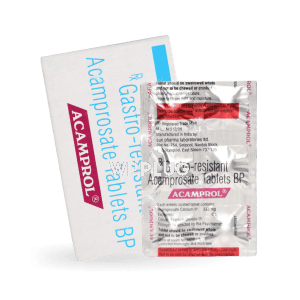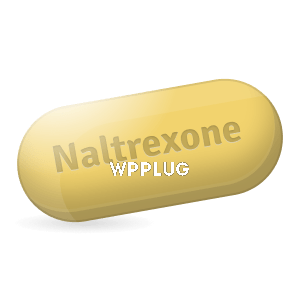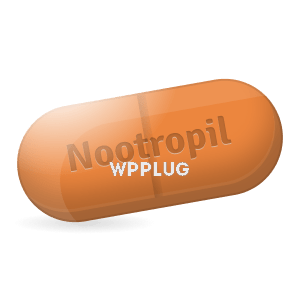| Product dosage: 250mg | |||
|---|---|---|---|
| Package (num) | Per pill | Price | Buy |
| 90 | $0.52 | $46.44 (0%) | 🛒 Add to cart |
| 120 | $0.48 | $61.92 $57.54 (7%) | 🛒 Add to cart |
| 180 | $0.46 | $92.87 $82.78 (11%) | 🛒 Add to cart |
| 270 | $0.44 | $139.31 $119.12 (14%) | 🛒 Add to cart |
| 360 | $0.43
Best per pill | $185.75 $154.45 (17%) | 🛒 Add to cart |
| Product dosage: 500mg | |||
|---|---|---|---|
| Package (num) | Per pill | Price | Buy |
| 60 | $0.96 | $57.54 (0%) | 🛒 Add to cart |
| 90 | $0.85 | $86.31 $76.72 (11%) | 🛒 Add to cart |
| 120 | $0.79 | $115.08 $94.89 (18%) | 🛒 Add to cart |
| 180 | $0.73 | $172.62 $131.23 (24%) | 🛒 Add to cart |
| 270 | $0.69 | $258.94 $186.76 (28%) | 🛒 Add to cart |
| 360 | $0.68
Best per pill | $345.25 $244.30 (29%) | 🛒 Add to cart |
Synonyms | |||
Trending

Acamprol 333 mg: Restoring Neurochemical Balance for Alcohol Dependence
Acamprol 333 mg is a prescription medication specifically formulated for the maintenance of abstinence from alcohol in patients with alcohol dependence who are …
From 62.49 $ • 333 mg x30 pills🛒 Add to cart
Naltrexone HCl: Clinically Proven Alcohol Dependence Management
Naltrexone Hydrochloride is a non-addictive, opioid antagonist medication approved by the FDA for the management of alcohol dependence in adults. It is …
From 215.91 $ • 50mg x30 pills🛒 Add to cart
Antabuse Generic: Clinically Proven Alcohol Dependence Support
Antabuse generic, containing the active ingredient disulfiram, is a cornerstone pharmaceutical intervention for chronic alcohol use disorder. It functions as an …
From 46.11 $ • 250mg x90 pills🛒 Add to cart
Acamprol: Clinically Proven Support for Alcohol Dependence Recovery
Acamprol (acamprosate calcium) is a prescription medication specifically formulated to support the maintenance of abstinence in alcohol-dependent patients who …
From 62.36 $ • 333 mg x30 pills🛒 Add to cart
Naltrexone: A Cornerstone in Medication-Assisted Treatment
Naltrexone is a potent opioid antagonist medication primarily indicated for the management of alcohol use disorder and the prevention of relapse to opioid …
From 214.96 $ • 50mg x30 pills🛒 Add to cart
Nootropil 800mg: Advanced Cognitive Support for Brain Health
Nootropil is a well-established nootropic medication, with the active ingredient Piracetam, designed to support and enhance cognitive function. As a member of …
From 66.14 $ • 800mg x60 pills🛒 Add to cart
Antabuse Generic: Clinically Proven Alcohol Dependence Support
Antabuse generic, containing the active ingredient disulfiram, is a cornerstone pharmaceutical intervention for chronic alcohol use disorder. It functions as an aversive therapy by altering the body’s metabolism of alcohol, leading to highly unpleasant physical reactions upon consumption. This mechanism supports long-term abstinence by creating a powerful psychological deterrent, making it a vital tool in comprehensive treatment plans under medical supervision. Its use is indicated for motivated patients within structured recovery programs.
Features
- Active Ingredient: Disulfiram
- Standard Tablet Strength: 250 mg
- Mechanism of Action: Irreversible inhibition of aldehyde dehydrogenase (ALDH)
- Administration: Oral tablet
- Bioavailability: 80-95%
- Half-life: 60-120 hours
- Onset of Action: Full effect within 12 hours of ingestion; persists for up to 14 days after cessation
- Prescription Status: Rx-only
Benefits
- Creates a powerful psychological deterrent against alcohol consumption by associating drinking with immediate adverse effects.
- Supports long-term sobriety as part of a comprehensive treatment plan that includes counseling and behavioral therapy.
- Provides a tangible commitment mechanism for patients, reinforcing daily decision-making against alcohol use.
- Reduces relapse frequency by mitigating impulsive drinking behaviors through fear of adverse reaction.
- Non-addictive pharmacological profile, eliminating concerns of substitution dependency.
- Facilitates patient accountability within structured outpatient or aftercare programs.
Common use
Antabuse generic is primarily prescribed for the management of chronic alcohol dependence in patients who desire to remain in a state of enforced sobriety. It is used as an adjunct to a broader therapeutic regimen that includes psychological support, counseling, and social reinforcement. Ideal candidates are those who have undergone detoxification, are highly motivated, and understand the consequences of alcohol consumption while on the therapy. It is not intended for use as a standalone treatment or for patients without a clear commitment to abstinence.
Dosage and direction
Initial dosing must be initiated only in patients who have abstained from alcohol for at least 12 hours. A common starting dose is 500 mg daily for 1–2 weeks, often administered in the morning. Maintenance dosing typically ranges from 125 mg to 500 mg daily, adjusted based on patient tolerance and therapeutic response. Tablets should be swallowed whole; crushing or chewing is not recommended. Administration is ideally supervised, especially during the early phase of treatment, to ensure compliance and safety.
Precautions
Patients must be fully informed about the disulfiram-ethanol reaction (DER) and the necessity of avoiding all sources of alcohol, including hidden forms in foods, medications (e.g., cough syrups), and topical products. Liver function tests should be monitored before initiation and periodically during treatment. Use with caution in patients with diabetes, hypothyroidism, epilepsy, or renal impairment. Dermatological reactions, including allergic dermatitis, may occur. Psychiatric status should be assessed regularly due to potential mood changes.
Contraindications
Antabuse generic is contraindicated in patients with severe cardiac disease, psychosis, or hypersensitivity to disulfiram or other thiuram derivatives. It must not be administered to anyone who has recently consumed alcohol or metronidazole. Contraindications also include severe hepatic impairment, and it is not recommended during pregnancy or breastfeeding unless the potential benefit justifies the potential risk.
Possible side effect
Common side effects may include drowsiness, fatigue, metallic or garlic-like aftertaste, acneiform eruptions, and mild allergic reactions. Less frequently, patients may experience hepatotoxicity (evidenced by jaundice, dark urine), peripheral neuropathy, optic neuritis, or psychiatric effects such as depression or psychosis. The most severe adverse effect is the disulfiram-ethanol reaction, characterized by flushing, tachycardia, hypotension, nausea, and vomiting.
Drug interaction
Disulfiram inhibits several hepatic enzymes, including CYP2E1, and may alter the metabolism of concomitant medications. Notable interactions include warfarin (increased anticoagulant effect), phenytoin (elevated levels), benzodiazepines (prolonged sedation), and theophylline (reduced clearance). Concurrent use with alcohol or alcohol-containing products is strictly prohibited. Avoid coadministration with metronidazole or paraldehyde due to increased risk of psychotic reactions.
Missed dose
If a dose is missed, it should be taken as soon as remembered on the same day. If it is near the time of the next dose, skip the missed dose and resume the regular schedule. Do not double the dose. Consistent daily intake is critical to maintain the aversive barrier; irregular dosing may reduce its deterrent effect.
Overdose
Symptoms of overdose may include nausea, vomiting, dizziness, lethargy, incoordination, and in severe cases, seizures, respiratory depression, or cardiovascular collapse. There is no specific antidote. Management is supportive and includes gastric lavage (if presented early), activated charcoal, and symptomatic treatment. Hospitalization and monitoring of vital signs, electrolyte balance, and neurological status are essential.
Storage
Store at room temperature (15–30°C or 59–86°F) in a tightly closed container, protected from light and moisture. Keep out of reach of children and pets. Do not use after the expiration date printed on the packaging.
Disclaimer
This information is for educational purposes and does not replace professional medical advice, diagnosis, or treatment. Always consult a qualified healthcare provider before starting or changing any medication regimen. Do not disregard professional medical advice based on content provided here.
Reviews
Clinical studies and patient reports consistently affirm the efficacy of Antabuse generic in supporting alcohol abstinence among motivated individuals. In trials, it has demonstrated a significant reduction in drinking days and increased continuous abstinence rates when combined with psychosocial interventions. Patient testimonials frequently highlight its role as a behavioral “circuit breaker,” though many emphasize that its effectiveness depends heavily on personal commitment and medical oversight.
